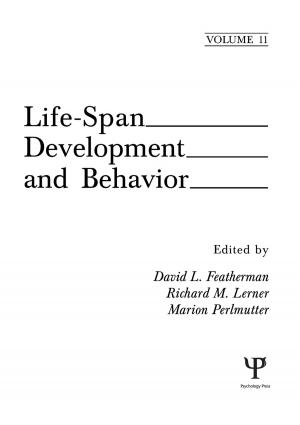Black Skins, Black Masks
Hybridity, Dialogism, Performativity
Nonfiction, Social & Cultural Studies, Social Science| Author: | Shirley Anne Tate | ISBN: | 9781351955249 |
| Publisher: | Taylor and Francis | Publication: | July 5, 2017 |
| Imprint: | Routledge | Language: | English |
| Author: | Shirley Anne Tate |
| ISBN: | 9781351955249 |
| Publisher: | Taylor and Francis |
| Publication: | July 5, 2017 |
| Imprint: | Routledge |
| Language: | English |
Black Skin, Black Masks: Hybridity, Dialogism, Performativity offers a timely exploration of Black identity and its negotiation. The book draws on empirical work recording everyday conversations between Black women: friends, peers and family members. These conversations are discussed in the light of the work of Homi Bhabha, Stuart Hall, Gerd Baumann, Claire Alexander and others on questions of hybridity, identity, otherness and the development of ’new ethnicities’. Tate aims to address what she sees as significant omissions in contemporary Black Cultural Studies. She argues that theorists have rarely looked at the process of identity construction in terms of lived-experience; and that they have tended to concentrate on the demise of the essential Black subject, paying little attention to gender. The book points to a continuation of a ’politics of the skin’ in Black identities. As such it argues against Bhabha's claim that essence is not central to hybrid identities. The conversations recorded in the book reveal the ways in which women negotiate the category of Blackness, in what Tate calls a 'hybridity-of- the-everyday'. The book introduces a new interpretative vocabulary to look at the ways in which hybridity is orchestrated and fashioned, showing it to be performative, dialogical and dependent on essentialism.
Black Skin, Black Masks: Hybridity, Dialogism, Performativity offers a timely exploration of Black identity and its negotiation. The book draws on empirical work recording everyday conversations between Black women: friends, peers and family members. These conversations are discussed in the light of the work of Homi Bhabha, Stuart Hall, Gerd Baumann, Claire Alexander and others on questions of hybridity, identity, otherness and the development of ’new ethnicities’. Tate aims to address what she sees as significant omissions in contemporary Black Cultural Studies. She argues that theorists have rarely looked at the process of identity construction in terms of lived-experience; and that they have tended to concentrate on the demise of the essential Black subject, paying little attention to gender. The book points to a continuation of a ’politics of the skin’ in Black identities. As such it argues against Bhabha's claim that essence is not central to hybrid identities. The conversations recorded in the book reveal the ways in which women negotiate the category of Blackness, in what Tate calls a 'hybridity-of- the-everyday'. The book introduces a new interpretative vocabulary to look at the ways in which hybridity is orchestrated and fashioned, showing it to be performative, dialogical and dependent on essentialism.















